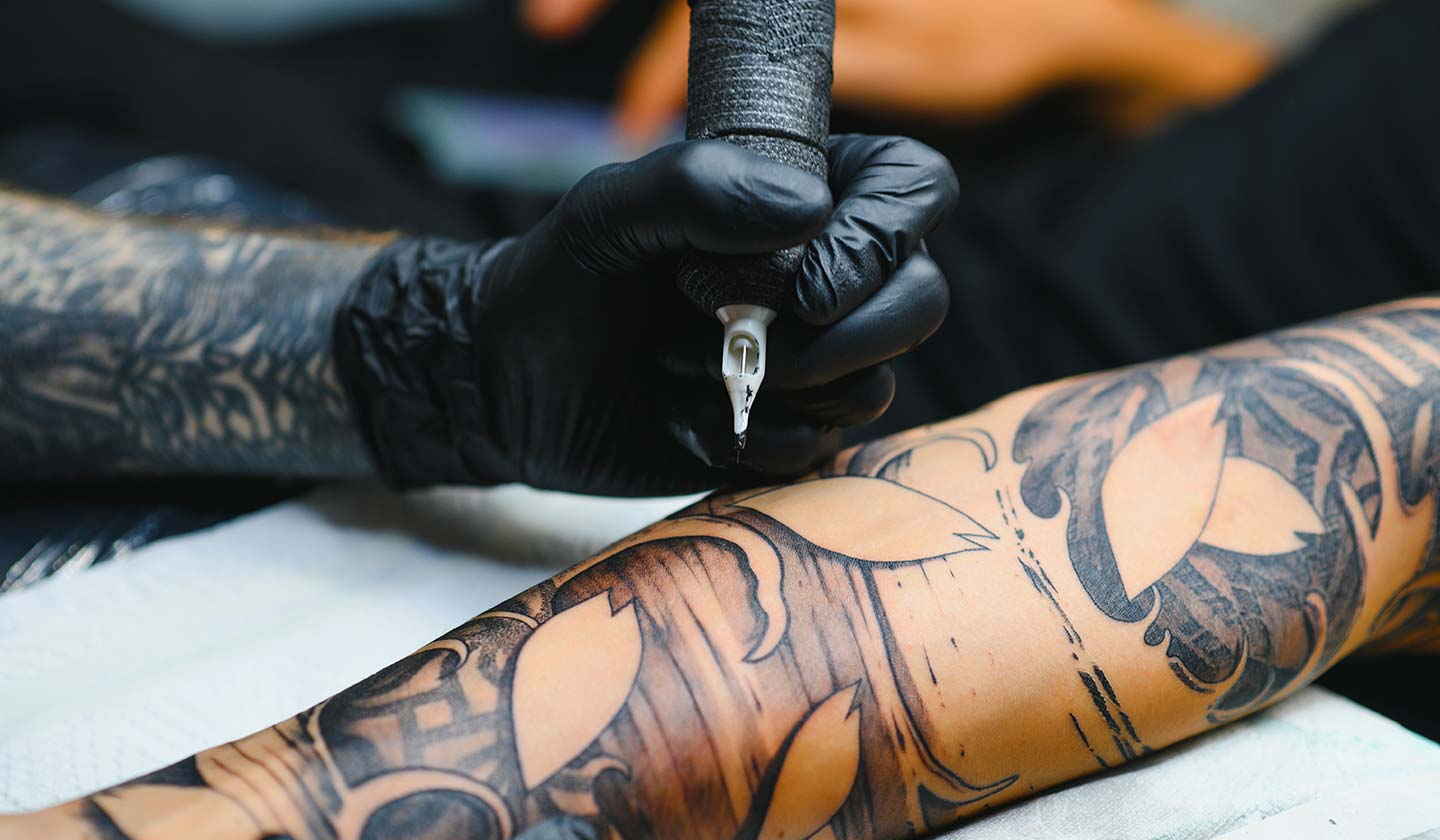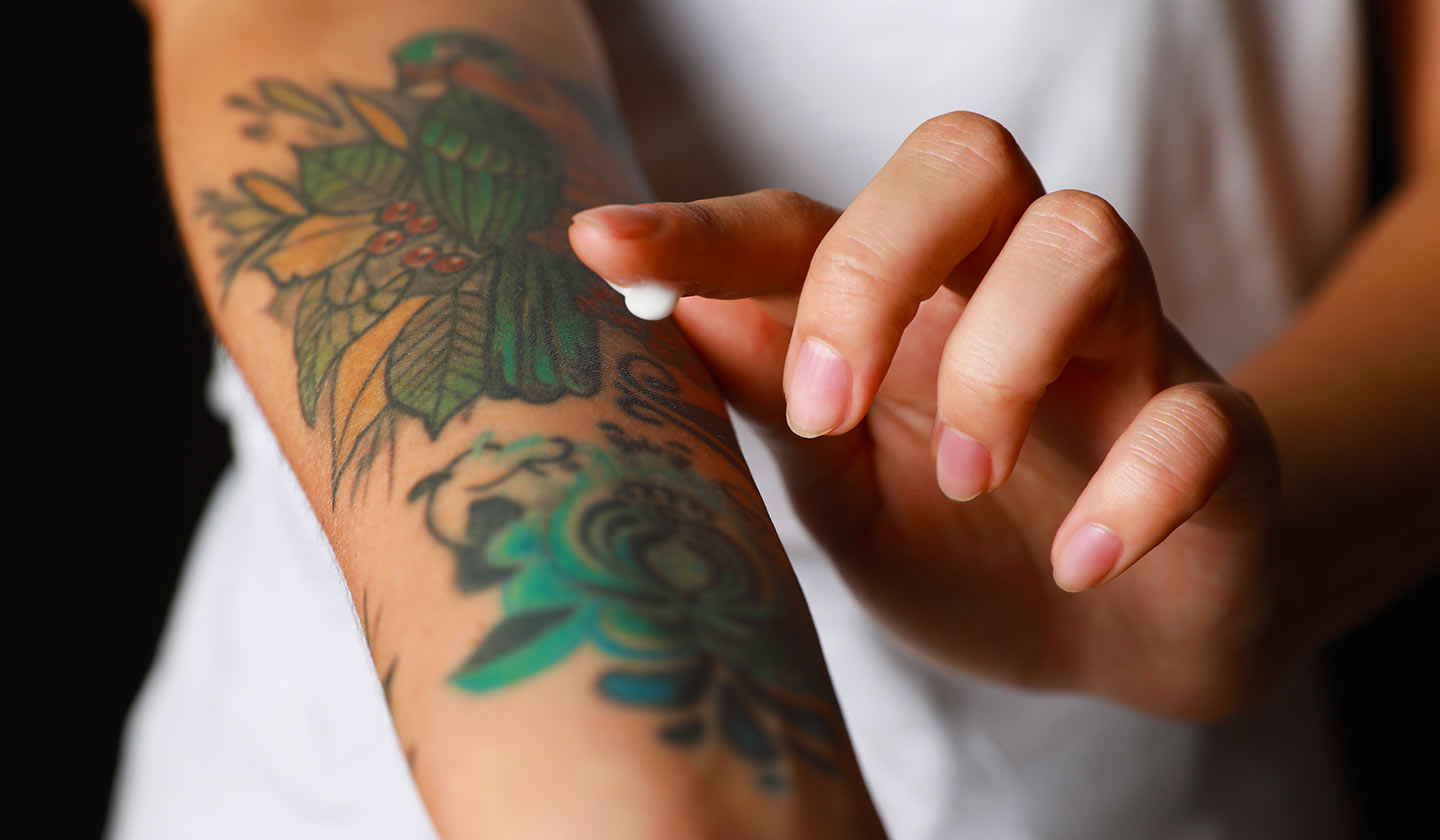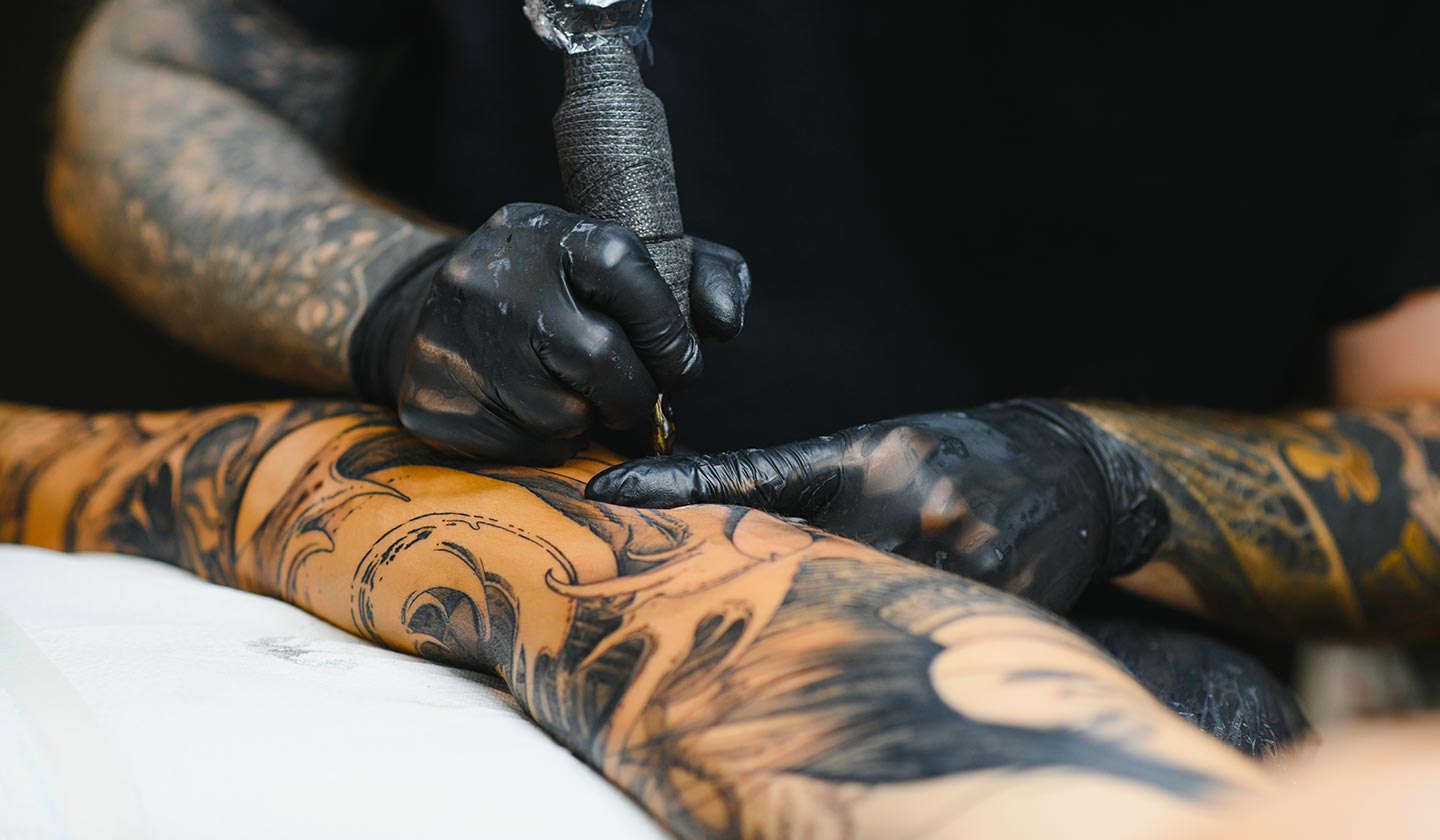Dermatology
Tattooing - Long-term tattoo care

The tattooed area requires careful and continuous hydration to avoid flaking and losing definition. Sun protection in the tattoo areas is also essential. However, more important than taking care of the tattoo, is taking care of the skin it inhabits. Hydration has to occur in every way, in addition to using a moisturizer it is very important to drink water.

1. Apply sunscreen daily
The sun's UV rays can cause tattoos to fade from overexposure. When you go outdoors, even for a few minutes, apply SPF 30 or higher to the tattoo and the skin around it. Even if it is in a place covered by clothes, it does not hurt to do this extra protection.
- The sunscreen used should offer broad spectrum protection against UVA and UVB rays.
- Apply it ten minutes before you leave the house if possible so that it has time to be absorbed by the skin. Then reapply every 80 minutes as needed.
- Even if you jet tan, you should still apply sunscreen, as tanning does not protect the skin against the sun's rays.
2. Watch for rashes or other signs of irritation
After the tattoo has completely healed, there may be rashes, irritation and even infection. Look out for signs like redness, itching, inflammation and peeling on the skin in the area. If you notice any of these, contact a doctor as soon as possible.
- Rashes can appear after prolonged exposure to the sun or after using a new cosmetic that contains different chemical substances for the skin.

3. Apply lotions and creams when necessary
A tattoo only looks beautiful if the skin is healthy too, so moisturising is key to its longevity. Using a gentle daily moisturiser will preserve your tattoo for years to come.
- Avoid products with petrolatum. Vaseline and other petroleum derivatives can even make the paint fade.
- If your skin is very dry or itchy, don't skimp on the moisturizer. You can even carry a small hand cream in your handbag and use it whenever you need it.

4. Return to the studio for periodic touch ups
Retouching is part of any tattoo maintenance. In these short sessions, the tattoo artist reinforces the fine lines and also the colours that have faded or makes adjustments to make the design more beautiful.
- The need for retouching varies according to the tattoo, the skin and the person's lifestyle. If you notice that yours is a little dull or faded, don't hesitate to talk to your tattoo artist.
- Generally, people usually touch up every five to ten years, depending on the state of the tattoo.

Facts and myths
Facts:
- Getting a tattoo can be painful;
- Tattoos should be done in winter;
- Red, orange and yellow colours pose more risks;
- Allergic reactions can appear up to several years later;
- During an MRI scan, it is possible to feel pain or swelling in the tattooed areas of skin;
Myths:
- A tattoo is for life;
- The risk of infection is always the same.
Ana Margarida Neto
(Pharmaceutical - Biotifar Pharmacy)
Também lhe poderá interessar
Dermatology






